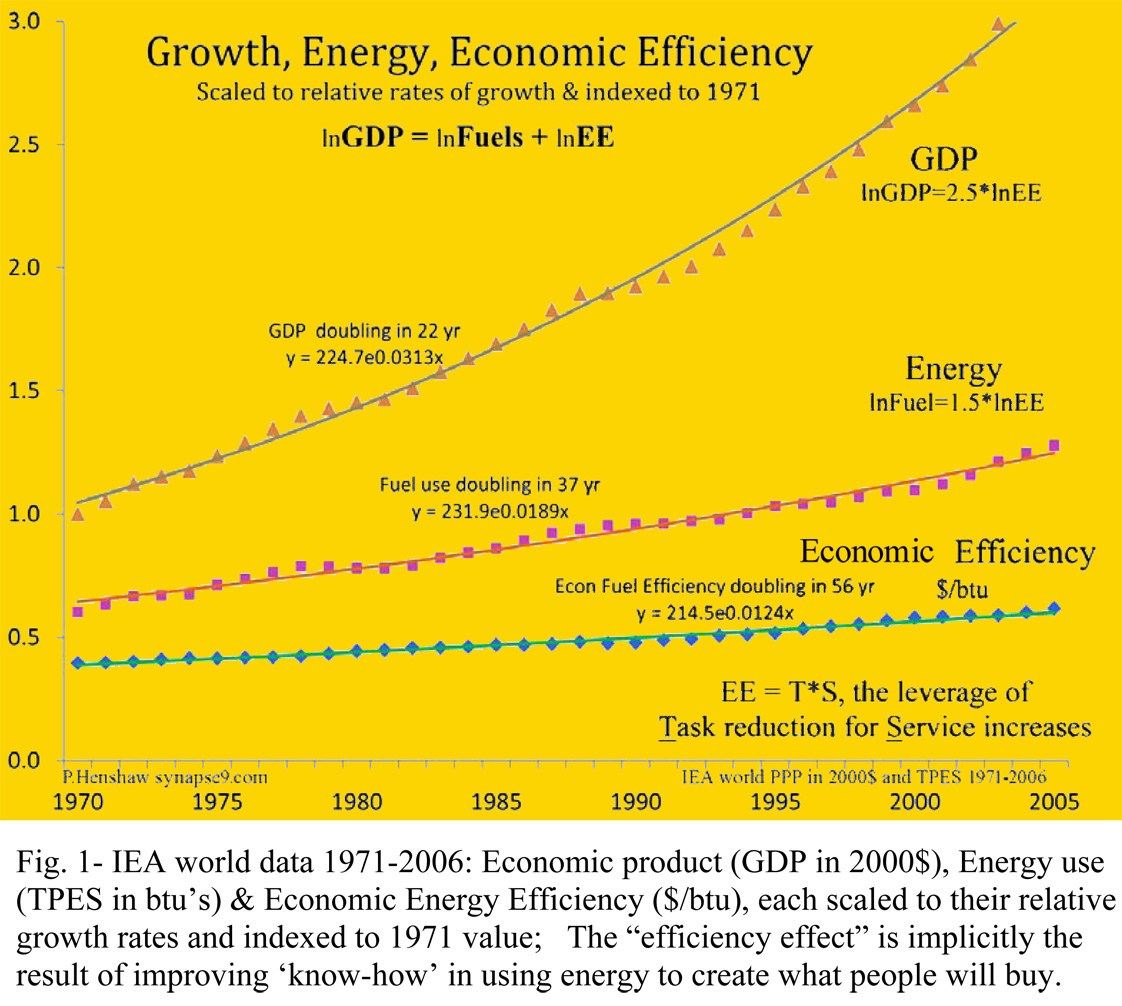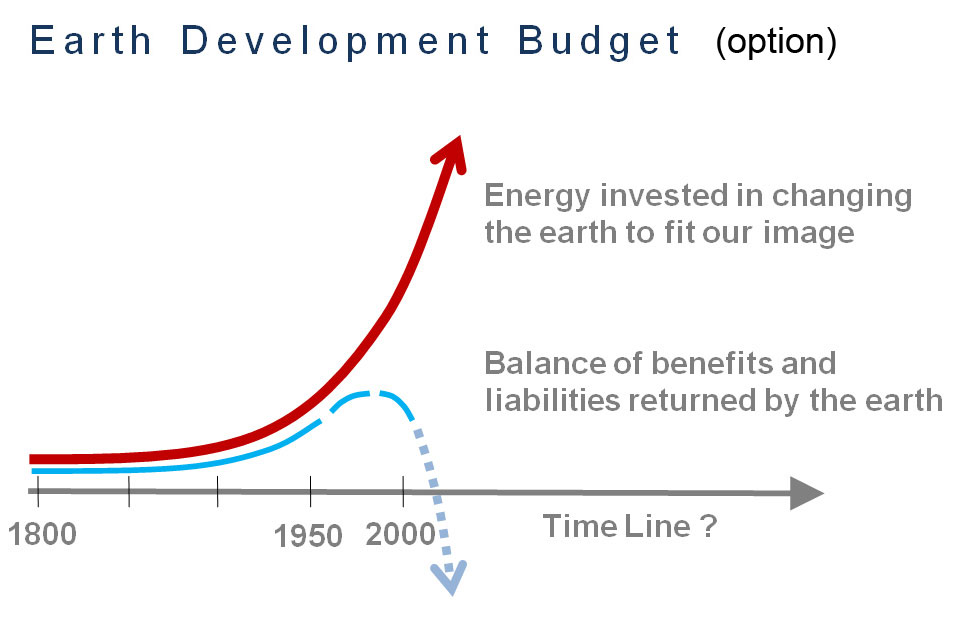I think the answer is, well, yes of course… Most people seem to
intuitively confuse increasing their access to resources with increasing the
supply when increasing their access to resources actually decreases the earth’s
supply.
This is another way to understand the various mysterious efforts
to reduce the impacts of growth by streamlining and accelerating growth, which
of course multiplies its impacts. It basically means we are not being
self-critical and asking the hard questions. The easiest data to display the
effect with is the world energy/GDP balance:

Improving technology makes it appear that our resource supplies are increasing when it’s really the depletion of resources of ever higher cost that is increasing.
Nearly everyone assumes that improving efficiency would reduce energy use but it has actually been increasing energy use by a ratio of 1unit of efficiencies to 2.5 units of new uses created. It seems to have had had that reverse effect for as long as anyone has kept records (see Inside Efficiency). Improving efficiency does increase OUR PERSONAL resources, and so reduces OUR PERSONAL resource constraints accordingly. It just doesn’t increase the earth’s resources or its resource constraints.
This translates into a serious unavoidable natural liabilities bubble for
economies designed to serve personal needs rather than become sustainable. As solving resource needs that way begins to create a problem of needing to do it ever faster, you run into natural obligations to escalate investment for
declining returns. It applies to any system that sustains its growth by
accelerating resource depletion, as all our traditional development schemes seem to do.

So, increasing the resources at our command (our demand) seems to be thought of as our supply… but accelerates depletion of the real supply
The same general principle of systems ecology applies to the development of any other kind of resource available to be exploited. Though it starts out
continually increasing our supply of things, improving technology to create more
supply accelerates depletion (the earth’s supply), leading to a liabilities bubble.
All directions of development are subject to the same natural terminal limits of increasing investment leading to diminishing returns on investment. It occurs as a system runs into increasing difficulty on approaching natural limits to its
resources and ability to reorganize itself.
The way the principle is used in systems ecology, since simple conceptual models don’t adequately describe any natural system, is to rephrase the principle as a question. You then search the environment for indications of when the implied points of diminishing and then vanishing returns are approaching.
You start by asking for any development system what complications might arise as it tries to control ever more of its environment.
I think people are definitely confusing their supplies and the earth’s supply,
quite generally. The trouble seems to be that it is done so very habitually that
even professionals can’t really discus the matter, so much of our common
language and popular ideas are mixed up that way.
pfh
